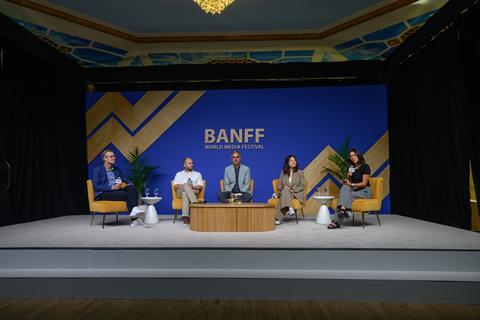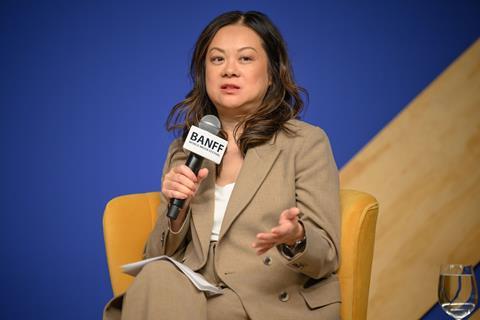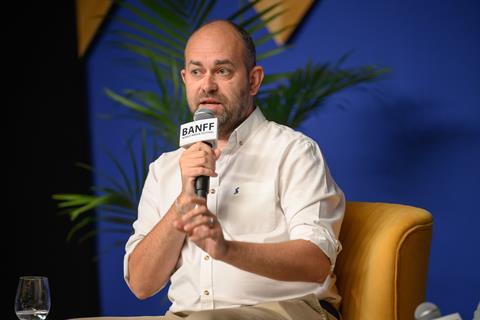Debate over ethical use of tech seen as key issue as regulation takes centre stage

Audiences will dictate how the production community responds to the use of AI, according to one of the UK industry’s leading practitioners in the technology.
Speaking as part of the ‘Regulations, Ethics, and AI - Oh My!’ panel at the Banff World Media Festival earlier this week, Deep Fusion Films boss, producer and ethical AI expert Benjamin Field said the growth of the creator economy and social video platforms – which can operate outside of industry-specific regulation and guard-rails – could determine what consumers find palatable with the tech.
“The audience is going to drive how we respond [to AI-infused programming]. We like to think we’re in control of what people watch, I don’t think we are anymore,” Field told panellists. “The audience will dictate whether we’re successful in the ways we build new infrastructures, regulations and self-regulation.
“It will end up that we’re regulated by whatever works, and we need to adapt to that. We’re in this adapt or die economy at the moment and whilst we can self-regulate, we have to be reactive to what audience trends are.”
Keeping pace
Field’s comments came as the panel – which also included Extraordinary AI chief Devrin Carlson-Smith, Dark Slope executive chair Raja Khanna and Writers Guild of Canada executive director Victoria Shen – discussed the importance and efficacy of AI regulation and appropriate use of the technology.

Shen vigorously advocated for regulation and guard-rails to protect writers, with retroactive censuring of companies that have exploited the lack of regulation to “justify their theft” of existing creative work.
She said that producers looking to monetise their content and protect it would “want to engage a writer who is not using AI”, however she agreed that the speed of growth of content on social video platforms is shifting viewing habits and this would provoke conversations, particularly as animation and children’s programming production is being hit in Canada.
“As an industry we’re competing with – particularly in the younger generation – YouTube and Tik Tok, we’re losing eyeballs to them,” she said. “We have to think about the kind of content we’re creating for younger generations. What they’re accustomed to seeing and what they want to see has shifted.”
Shen also noted that discussions “are all speculative” because the seemingly effective and reasonable uses of AI, such as reducing costs, had negative knock-on effects.
“What if there’s less money to make content,” she queried. “If there’s constantly an expectation that you’re going to make the same content with the same money or less money [that’s an issue]. That’s what we’ve seen in manufacturing. We’ve lowered costs and so now they pay less.”
Defining appropriate use

AI’s appropriate use remains the key area of debate for Khanna, of virtual production and gaming company Dark Slope, who said the “train has left the station” somewhat on regulation because “you can’t regulate content on the internet and then decide who’s allowed to use AI or not”.
“Within our bubble or industry, what are we going to do about it?” he asked. “To me, on those value-added jobs of creation, narrative and story perspectives, it comes down to each company having to decide where they want to play.
“Do we want to be the AI-generated, pump-it-out-on-Tik Tok [creators] or do we want to do something with more craft, narrative and art. Regulators aren’t going to tell you which part of the spectrum [you want to be in], you’ll have to decide.”
Field, who has written policy papers on AI and has shared his misgivings on government plans around the tech, argued the main thing is to ensure the creative community remains involved and up-to-speed with the technology.
“People tend to lump AI as a binary thing but AI has good actors and bad actors - it’s up to the individual to explore who those are,” he said.
“The industry is moving faster than ever before, and yes it feels massive. We do not need our creators and creative economy to feel cut off and alone.”








No comments yet